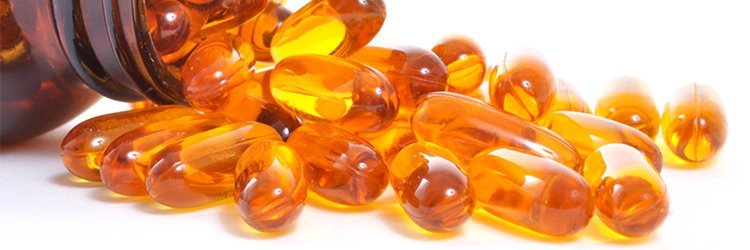
A study shows that bowel cancer patients with high levels of Vitamin D in their system are more likely to survive the disease than those with lower Vitamin D levels. According to the study conducted by the University of Edinburgh:
“Patients with the highest level of Vitamin D have half the risk of dying compared to those with the lowest levels.”
The research team of the University of Edinburgh tested blood samples from 1,600 bowel cancer patients. The study is the first to correlate total blood levels of vitamin D in bowel cancer patients after their diagnosis – which includes that produced after exposure to sunlight and that obtained from dietary sources – with their long term survival prospects.
Vitamin D, also known as sunshine vitamin, helps enhance the absorption of iron, calcium, magnesium, phosphate, and zinc in our body. According to the National Cancer Institute (NCI),
“Vitamin D is essential for the formation, growth, and repair of bones and for normal calcium absorption and immune function.”
In the study conducted by University of Edinburgh, bowel cancer patients with stage 2 disease, at which the tumor may be quite large but the cancer cells have not yet spread, have the greatest benefit in Vitamin D. Researchers discovered that 75% of the patients with the highest Vitamin D levels survived the disease after 5 years compared to those with lowest levels.
Although the relationship between Vitamin D and better bowel cancer survival odds is yet to be proven further, the researchers are hopeful they will be able to conclude this connection in further studies.
The researches aim to set up a clinical trial to test whether taking vitamin D tablets in combination with chemotherapy can improve bowel cancer survival rates.
According to the study’s author, Professor Malcolm Dunlop of Edinburgh Cancer Research UK Centre,
“Our findings are promising but it is important to note that this is an observational study. We need carefully designed randomized clinical trials before we can confirm whether taking vitamin D supplements offers any survival benefit for bowel cancer patients.”
How to obtain Vitamin D?
Vitamin D is different from other essential vitamins because our own bodies can manufacture it with sunlight exposure. However, sunlight exposure is not a privilege everyone can enjoy all the time. Adults who have darker skin pigmentation or frequently wear sun protection during outdoor activities are often vitamin D deficient. Also, the effects of global warming have limited the number of hours a person could safely spend under the sun without any skin protection.
Food is also a good source of Vitamin D. Foods like fresh tuna, fresh mackerel, fresh salmon, beef liver, soy milk, egg yolk, and cheese. However, acquisition of these types of food depend on the region and availability. Plus, the discovery and use of genetically modified organisms (GMO) affect the freshness of the food and the potency of the Vitamin D present.
Vitamin supplements provide agreeably the BEST way of obtaining Vitamin D needed by the body. This is also the best alternative when sunlight is neither enough nor available. Food supplements manufactured by trusted companies are both affordable and effective in providing Vitamin D for the body.
Although the vitamin D test is no longer covered by Ontario Health Insurance Plan or OHIP it is a good idea to pay the small fee to get it done. It is a safe bet that if you live in Canada and have limited sun exposure you are most likely low or deficient in vitamin D3. Make sure when you supplement you use D3 as it has a higher potency than D2 and better absorption. How much vitamin D3 to take? It depends on your needs according to health therapist Rick Saruna. He says depending who you talk to you will get different information. Only a blood test can tell you your exact levels. You want to test in the mid upper levels for optimal health. Saruna says much of the newer research is pointing to higher levels than most professionals should be suggesting.
Research also shows that if a high level of D is taken for over time there should be a supplementation of Vitamin K as well. Vitamin K however cannot be used with certain medications and there are different types of K. Please ask if you need any more information on this. It is important that when you are looking for supplements you get up to date and correct information.
Body and Mind Natural Health in Windsor, Ontario can answer all of your health nutritional questions. Visit the health food store the Body and Mind clinic for your Vitamin D and K and any other nutritional needs.
You can call the office at 519-948-0078. Body and Mind in Windsor, Ontario.
